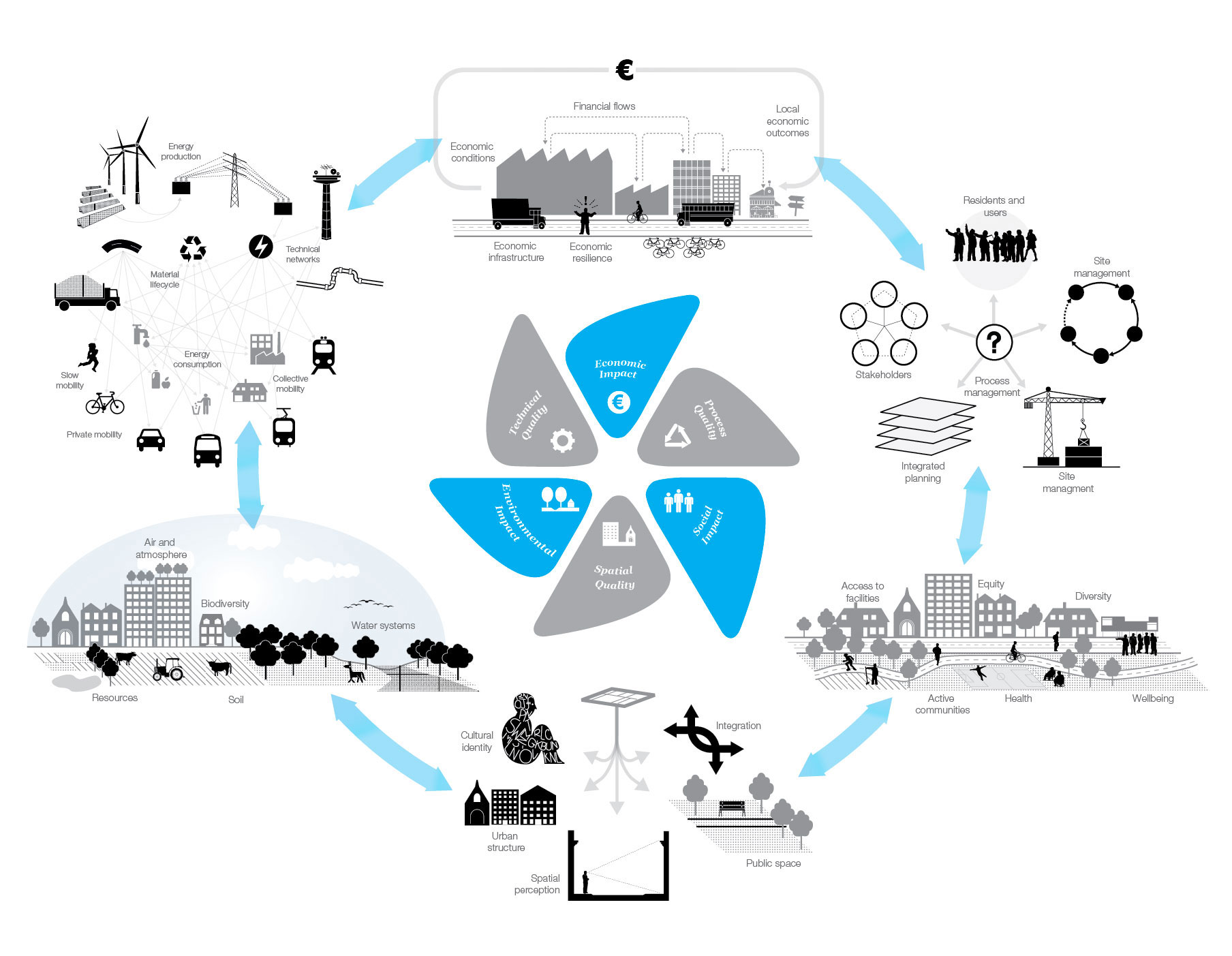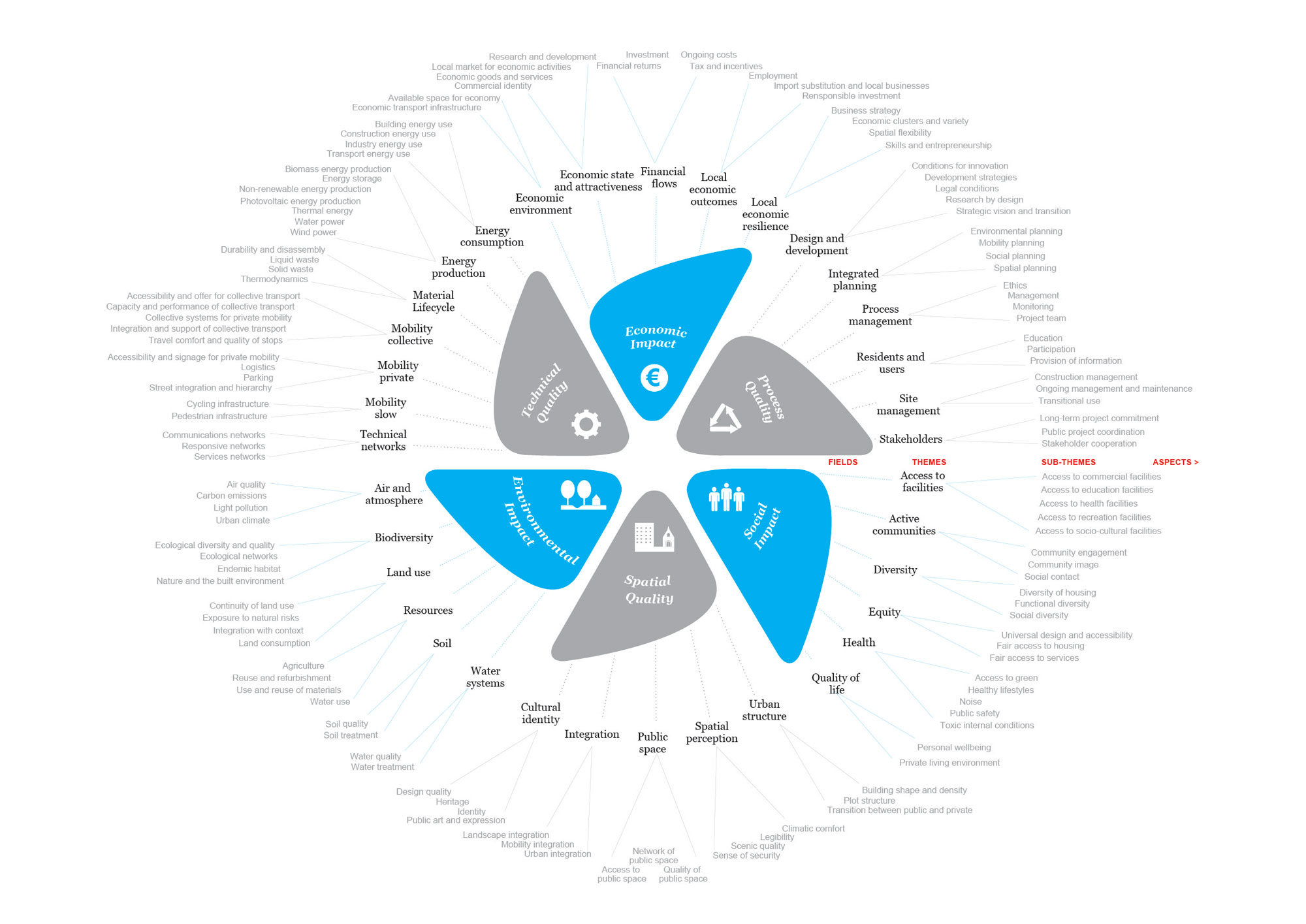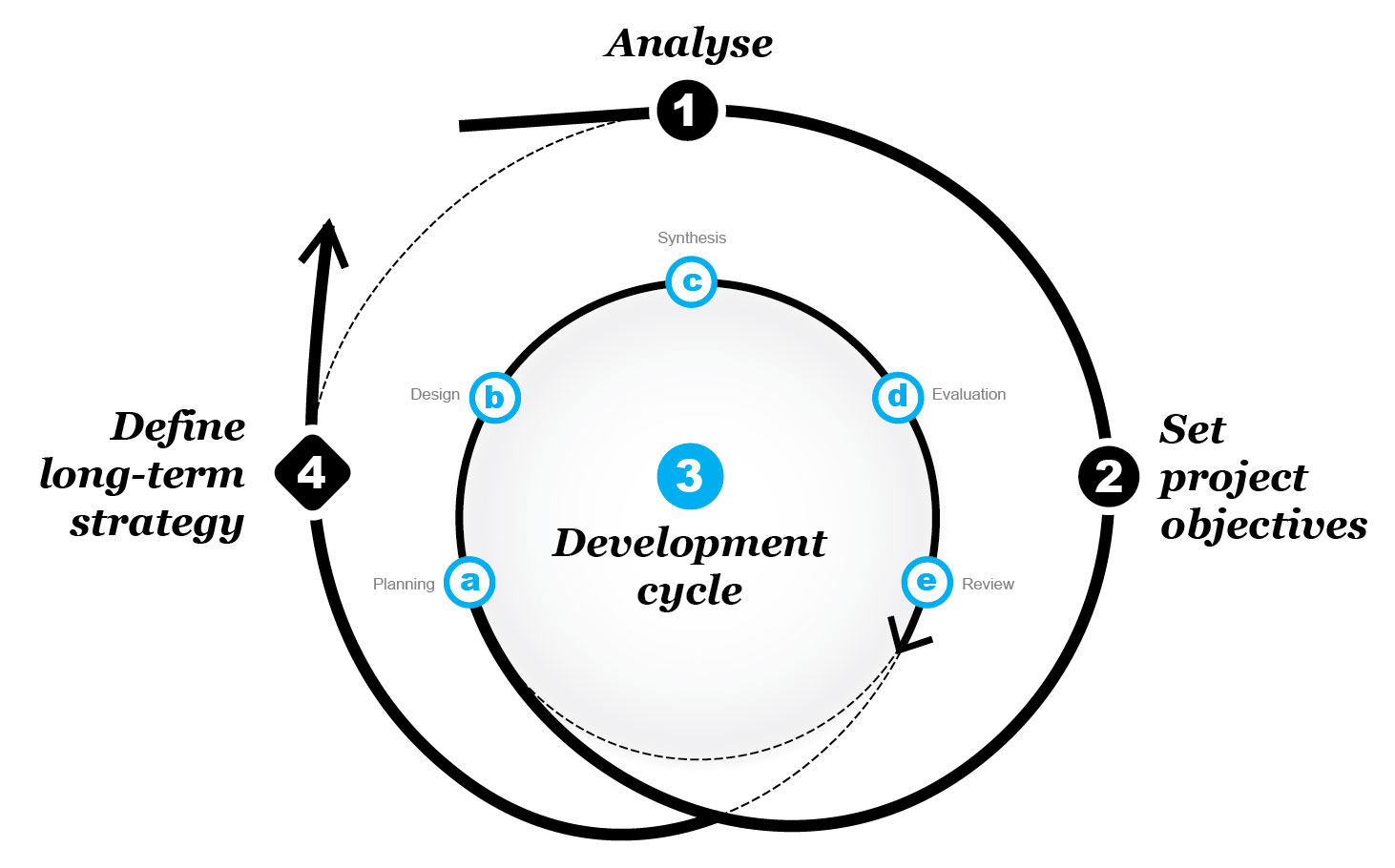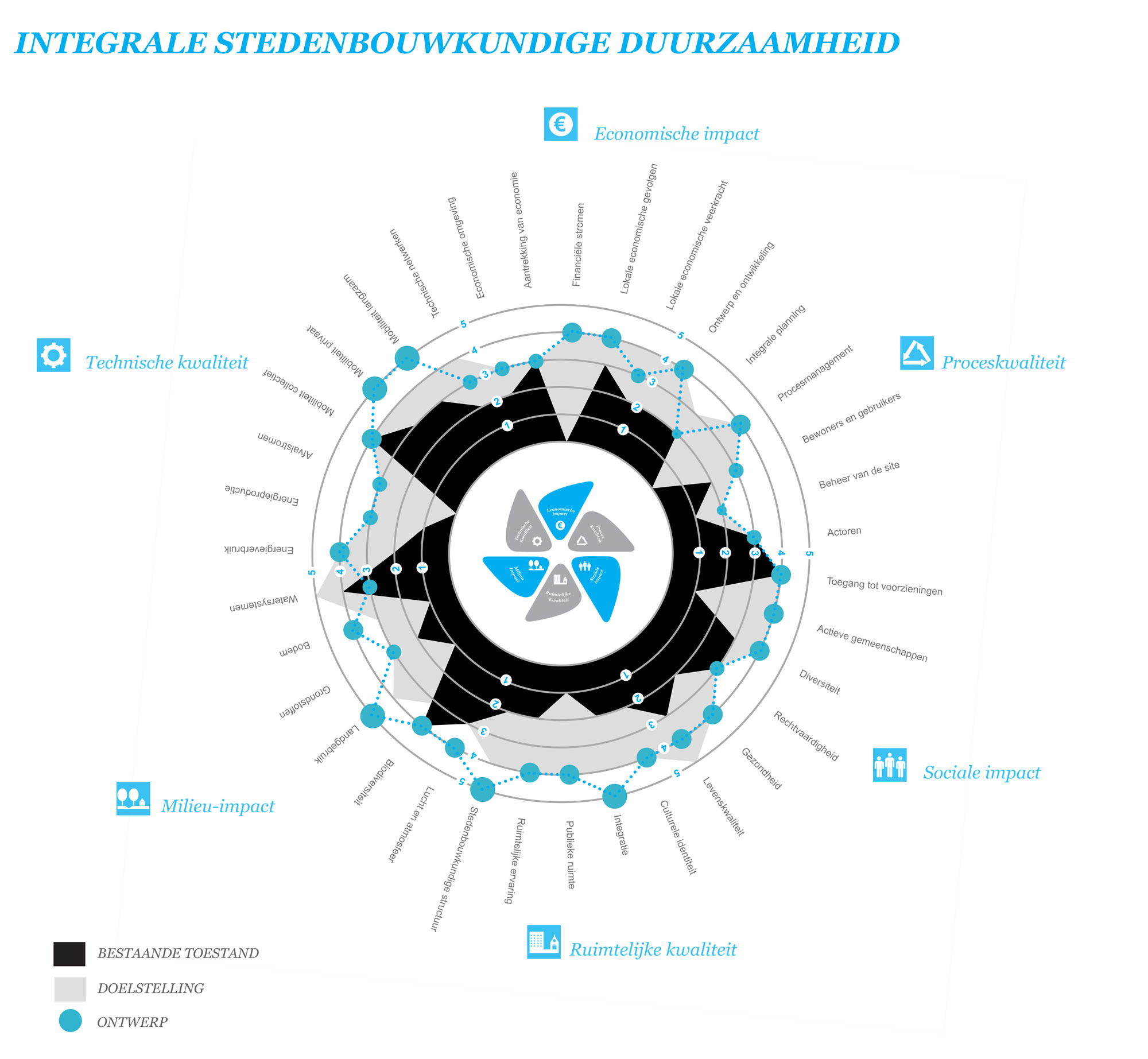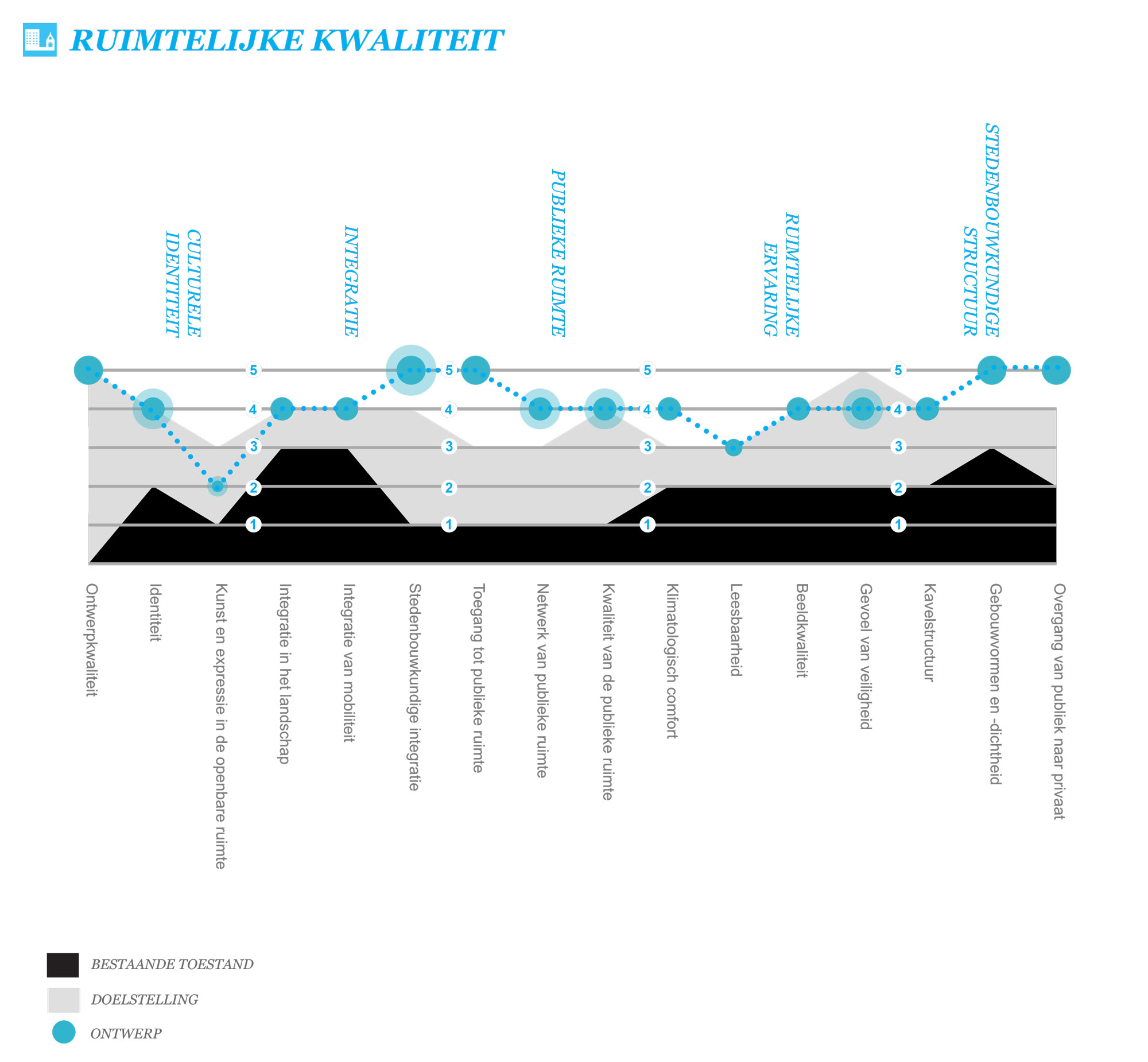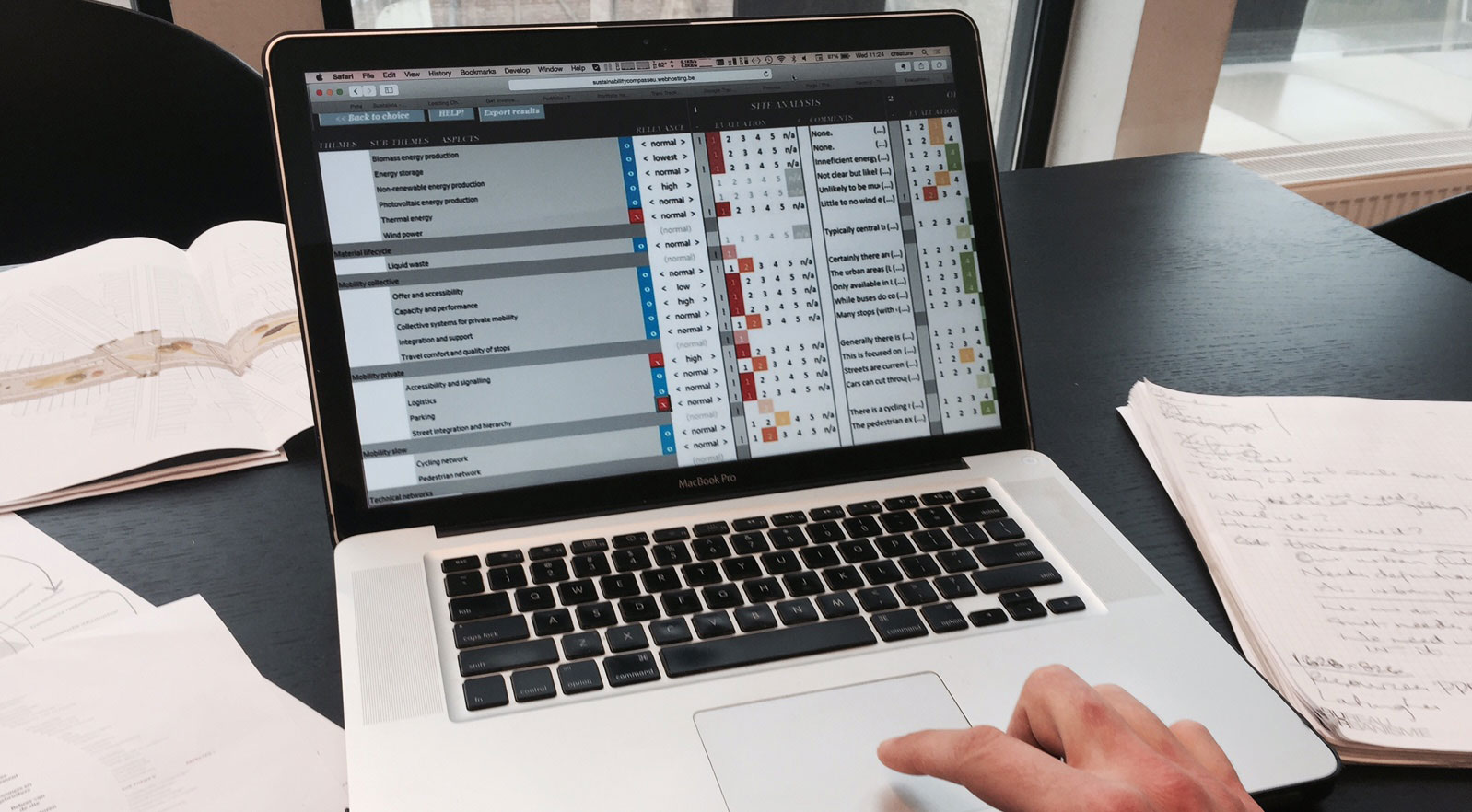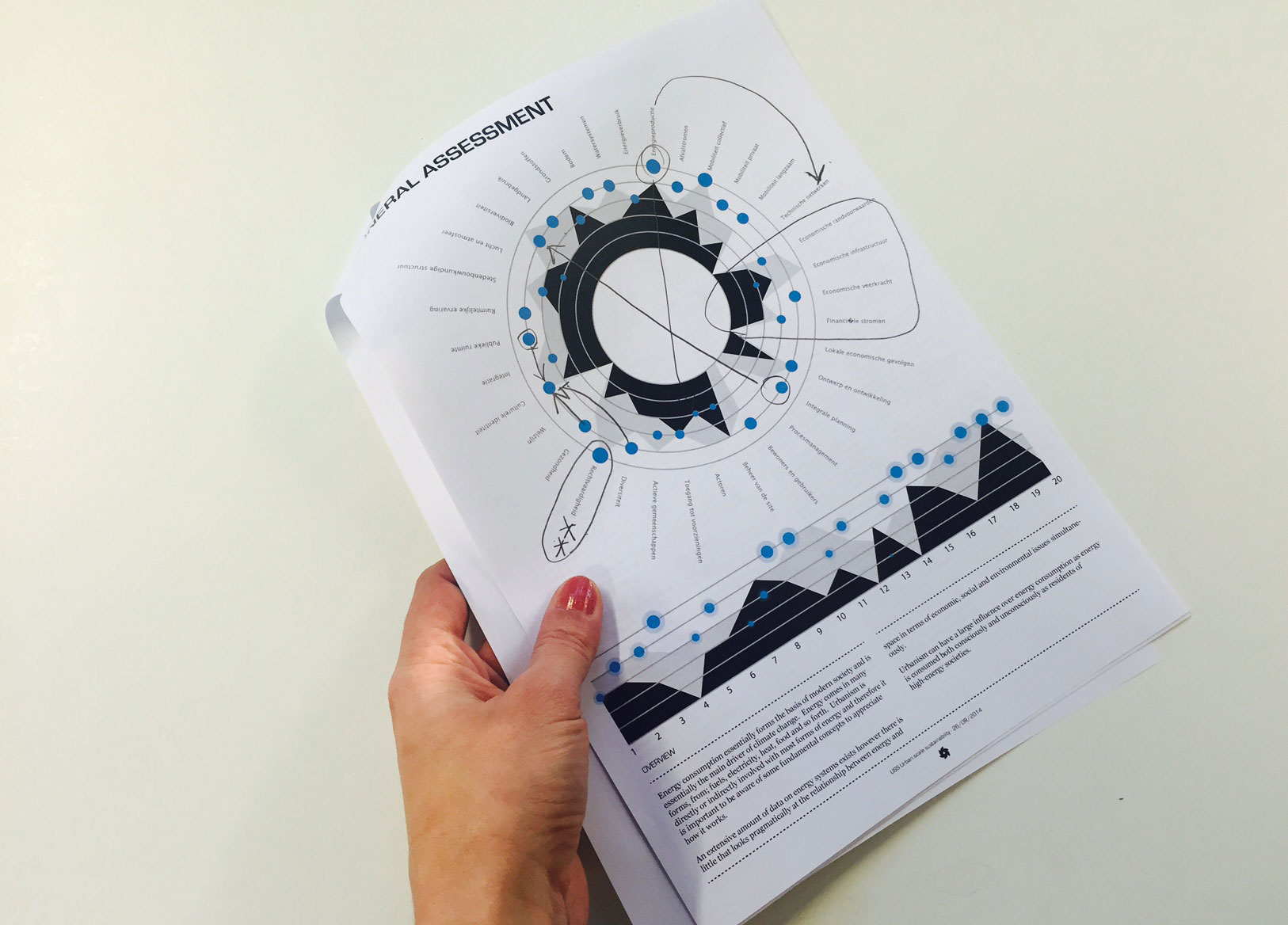We are regularly asked to justify how sustainable our projects are. While there have been countless efforts to link sustainability and urban areas, none are particularly effective in providing a ‘holistic’ approach to sustainability.
Existing approaches are often focused on a specific problem such as buildings, products, mobility, energy or carbon emissions. They focus on fixed solutions rather than processes of innovation. They focus on delivering a ‘tech-fix’ to deal with existing problems rather than deal directly with the source of the problem. They rarely look at social impacts, the quality of space, financial processes and particularly how to initiate change.
What we found urbanists need is firstly a definition of sustainability aligned better with urban areas. Secondly, as most critical decisions are made at the beginning of a project, urbanists need to find a way to select the most sustainable option. We found that it must not be useful for any profession or expertise interested in spatial urban problems and applicable to a wide range of complex urban conditions. It must be easily understood by stakeholders. It must also take a holistic approach that shares focus amongst environmental, social and financial issues.
The Sustainability Compass involves a number components.
1. Firstly a theory based on six Fields: Environment, Society, Economy, Space, Technology and Process. It involves extensive knowledge base of topics related to these six field.
2. A development process is cyclic which means that objectives are set early but refined regularly.
3. To guide the decision making process, we developed a method and a digital assessment tool.
4. Finally, to communicate decisions, we have developed an assessment diagram that synthesises the ideas during three phases: during the analysis, to define objectives and finally to evaluate the final design outcomes.
See more: www.sustainabilitycompass.eu

